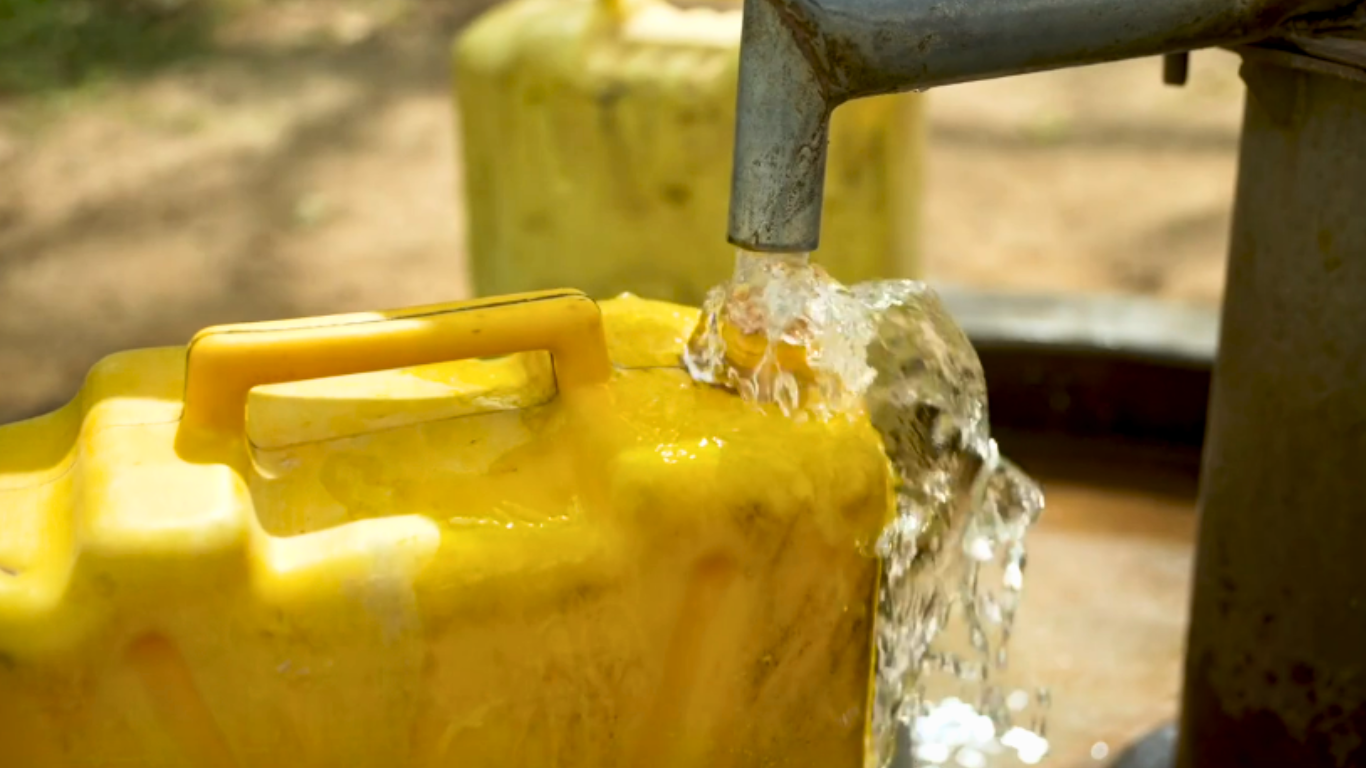The Ripple Effect: What Happens When a Community Gets Clean Water
Water is the source of life, connecting every living part, synchronising the rhythm of the ecosystem we all call home.
Yet, for many of us within industrialised nations, this vital resource is so readily available we quite often take it for granted. Water is critical for socio-economic development, for food production, health, and wellbeing. It is also an issue of human rights, with the United Nations recognising “the right of every human being to have access to enough water for personal and domestic uses, meaning between 50 and 100 litres of water per person per day.” Lack of access to clean water exacerbates disease, takes a greater toll on women and children and perpetuates the cycle of poverty.
In regions like northern Uganda, where 81% of people lack access to a clean water source, water is not just essential, it is a lifeline. According to our 2024 Huber Social Impact Report, access to water does far more than quench thirst. A study in the parish of Atangwata revealed that the installation of a borewell led to significant improvements not only in health and hygiene, but also in income, safety, resilience, and community wellbeing.
While a well is often seen as just a source of water, the data tells a deeper story; water is the catalyst for lasting transformation, flowing into every corner of life, and unlocking the potential of entire communities.
Love Mercy’s flagship program, Cents for Seeds, intended to build sustainable food security for entire communities. A clean water program had never been on the vision board, however, when the results of Love Mercy’s first Huber Impact report came back, we could not look away. In 2018, through impact assessment, we discovered that access to clean water was just as crucial to wellbeing as food security. This meant that no matter how successful our Cents for Seeds program is, without clean water access, levels of wellbeing will never reach their full potential.
So, Well Worth It began.
When a well is installed, clean drinking water is just the beginning. In Atangwata parish, access to water has created a ripple effect that touches every aspect of daily life. Since the installation of the community borewell, participants of a survey reported a 29% increase in safety when collecting water, thanks to the strategic and locally informed placement of the well. Clean water access also led to a 20% increase in water available for hygiene purposes, a 19% improvement in access to clean drinking water, and a 12% rise in water availability for growing crops.
One community member shared:
“We also feel safe when collecting water because of the selected location, unlike before when we would move to bushy areas in the swamp which would compromise our security and that of the children and women collecting water.”
At the heart of our approach is a belief that sustainable impact begins with community leadership. Local leaders and residents are actively involved in choosing the location, ensuring the well is both accessible and safe. This collective decision-making model results in practical solutions that are embraced and protected by the communities themselves.
This approach has a profound impact on safety. Previously, women and children had to walk through isolated, often dangerous areas in early hours and late evening to collect water. Now, because of co-designed placement, community members report significantly fewer safety concerns. With a 29% increase in perceived safety, the data reinforces what the community already knows: when you involve people in designing solutions, those solutions work better.
Clean water doesn’t just improve health; it unlocks economic potential. With water readily available for household use and agriculture, people have more time and resources to invest in other income-generating activities. In Atangwata, there was a 22% increase in participants reporting access to income beyond the harvest, demonstrating a shift toward greater financial resilience.
Atangwata has become a shining example of what’s possible when effective infrastructure is combined with empowered, community-led planning. Compared to other parishes, Atangwata saw consistently higher outcomes across water, income, and wellbeing indicators.
In contrast, other parishes without a nearby clean water source reported fewer positive attitudes towards harvest, less access to income, and less access to markets. A reminder that without consistent access to water, resilience is difficult to build. Atangwata’s progress isn’t just about one borewell; it’s about what happens when people are trusted to shape their own solutions and supported to do so effectively.
The success of Atangwata illustrates a powerful truth: water is not just a basic need, it’s the foundation upon which families can build better health, stronger economies, and more resilient communities. The data reveals a clear connection between water access and overall wellbeing, with benefits that extend well beyond hydration.
As climate change, poverty, and inequality continue to challenge rural communities, integrated, locally-led water solutions like these are essential. They don’t just meet needs, they open doors.
Since launching in 2018, the Well Worth It team have drilled 92 borehole wells, with 10 more in the pipeline for 2025, and repaired over 469 wells in communities across northern Uganda, restoring clean water access to over 400,000 people.
This is the impact your support has had. Every well drilled is the reason a mother feels safe, a farmer grows enough to sell at the market, and a child stays in school.
Join us in bringing this life-changing resource to more communities. Whether through donating, sharing our story, joining the Clean Water Run Club, or starting your own fundraiser, you can be part of the ripple effect.
A new water well is $8,000 to drill from start to finish.
To repair an existing well, it is just $300.

